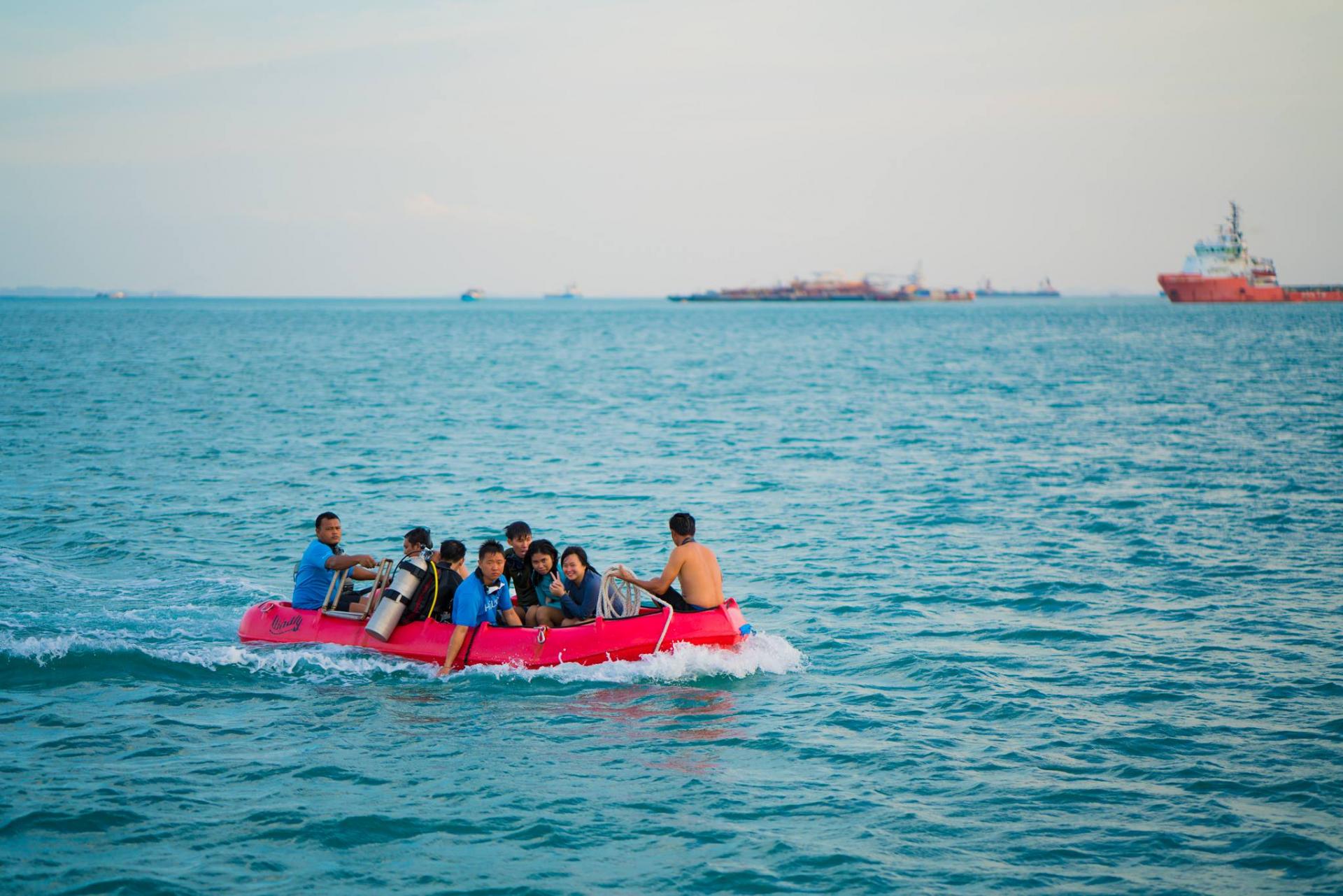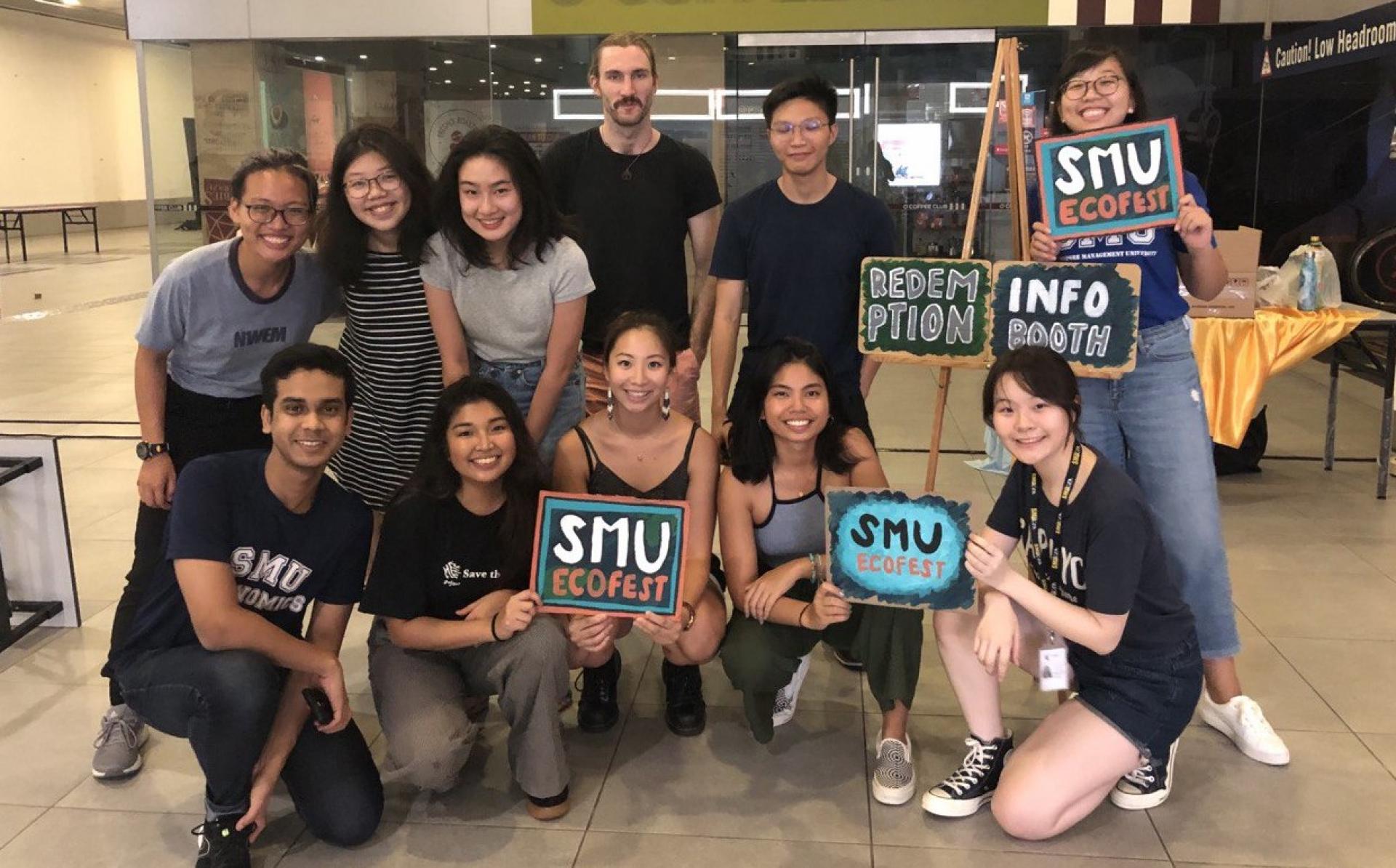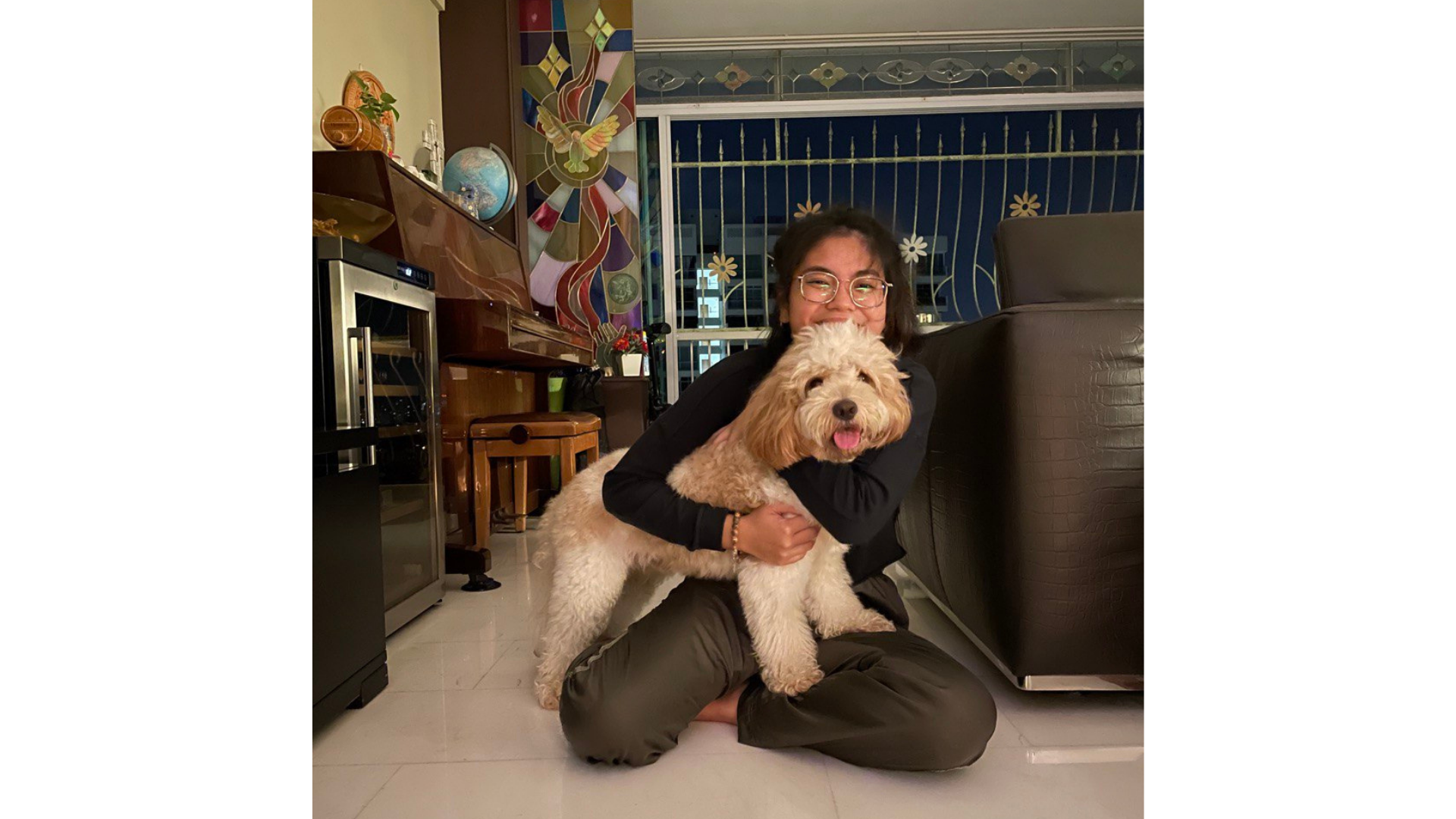My name is Elyza Carbajal, I'm a final-year student at the Singapore Management University's School of Social Sciences, and this story is the first in a three-part series chronicling my volunteering journey.
I can't think of volunteering without thinking of December 2017, when I travelled to the Philippines on a diving and marine conservation expedition. This trip was organised by SMU's Project Reef Alert, an overseas community service project, and I had been looking forward to it. However, upon arrival, we were told that a typhoon had just hit Cebu, specifically the area we were at. As a result, our dive guides announced the cancellation of our survey dives and scheduled visit to Carnaza Island. This was an important lesson about volunteering: that things don't always go as planned.

Elyza as part of Project Reef Alert, 2017.
Growing up as a student in Singapore, I was taught to study hard, and to participate in the various volunteering opportunities that presented themselves as part of the curriculum. These included visits to elderly and nursing homes, doing house cleanings for the less fortunate, and befriending individuals with special needs. Though at the time I treated these activities as a necessary part of my formal education, the early exposure to community involvement nurtured my curiosity to learn more about the lives and experiences of others.

In secondary school, volunteering became more interesting. I had more agency in organising the activities which ran for extended periods and required a heavier time commitment. One of my first long-term attachments was with a Senior Activity Centre located at an Ang Mo Kio void deck near my school. I would interact with the elderly residents and organise Bingo days for them, and I enjoyed listening to their personal stories.
Volunteering continues to be a part of my life in University. No doubt volunteering is a pre-requisite for graduation and looks good on a resume; however, I have also come to embrace every volunteering opportunity as a lesson in internalising kindness.

Elyza took part in SMU Eco Fest 2019.
Even though the typhoon derailed the activities of Project Reef Alert in 2017, I went back for the expedition the next year. There, my team and I assessed not only the health of the reefs in Singapore, but also monitored the thresher sharks at Monad Shoal in the Philippines. Doing these surveys reminded me that our planet is a giant ecosystem. If human activities result in our planet becoming unhealthy and imbalanced, humans themselves would be directly affected.
Elyza with her Project Reef Alert team mates when they returned to Carnaza, Philippines in 2018.
The island of Carnaza is a case in point. There, the local fishermen practise dynamite fishing in which they throw dynamite-filled glass bottles into the sea, which explode and kill all marine life in their immediate proximity. Dynamite fishing appears convenient—once the dead fish float to the surface, the fishermen can retrieve them easily. However, it is also a harmful and wasteful practice: fish that have glass shards in them are unsellable and have to be thrown away, and the explosion causes damage to coral reefs, resulting in the loss of habitat. If this cycle continues, the people of Carnaza will soon have no fish and seafood left to catch.

My several years of volunteering have helped me better understand myself and relate to the world I live in. When in doubt or faced with challenges, I only need to ask myself a few questions: Why am I doing this? Do I believe in this cause? Who am I doing this for? What changes can I make? How have I changed? And how can I continue to be better?




Comments